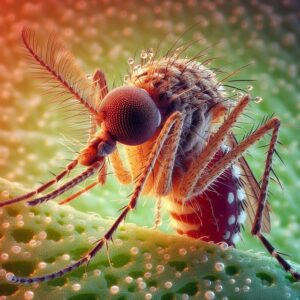Mosquitoes pose a significant health risk by transmitting diseases like malaria, dengue fever, Zika, and West Nile virus. Effective mosquito control involves understanding their behavior: dawn/dusk activity, water breeding sites, and seeking blood meals for reproduction. Strategies include eliminating standing water, using repellents (natural or chemical), screens, protective clothing, and traps. Natural repellents like citronella and lemongrass offer eco-friendly alternatives. Chemical repellents like DEET are controversial but research is exploring safer options. Environmental control by draining stagnant water is crucial, as is personal protection through clothing and insect repellent application. Modern tools include electric repellents and apps tracking mosquito activity. Community efforts, including education and vector control programs, are vital for sustainable mosquito control.
Mosquitoes are more than just a nuisance; they’re vectors for diseases that affect millions worldwide. Understanding these insects’ behavior and habitats is crucial for effective mosquito control. This article explores various methods to combat mosquitoes, from natural repellents like essential oils and plants to chemical solutions, environmental management techniques, personal protective measures, innovative devices, and community-based vector control programs. By examining these strategies holistically, we can better protect ourselves and our communities from these pesky carriers of disease.
Understanding Mosquitoes: Behavior and Habitats
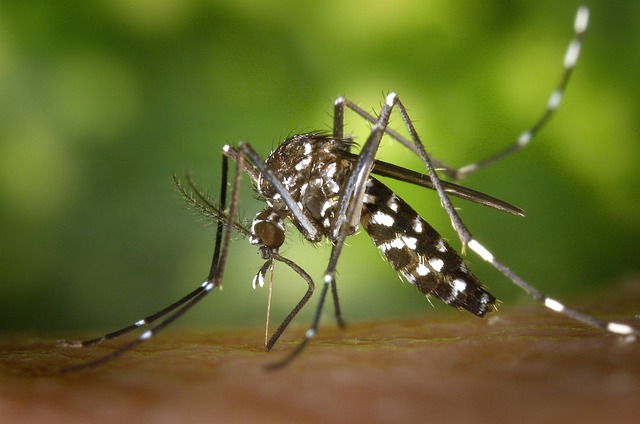
Mosquitoes are more than just a nuisance; they’re tiny vectors that can carry and transmit diseases like malaria, dengue fever, Zika virus, and West Nile virus. Understanding their behavior and habitats is crucial for effective mosquito control. These insects are most active during dawn and dusk, when they hunt for blood meals to support their reproduction. They prefer stagnant water sources for breeding, as it provides the ideal environment for their larvae to develop. Common habitats include ponds, marshes, clogged gutters, bird baths, and even small accumulations of standing water in containers around homes.
Knowing these habits allows for targeted mosquito control strategies. Eliminating or treating standing water, maintaining proper drainage, and using mosquito repellents can significantly reduce their populations. Additionally, installing screens on windows and doors, wearing protective clothing outdoors, and utilizing mosquito traps or zappers can further deter these pests, enhancing outdoor living experiences in areas where mosquito-borne diseases are prevalent.
Natural Repellents: Essential Oils and Plants
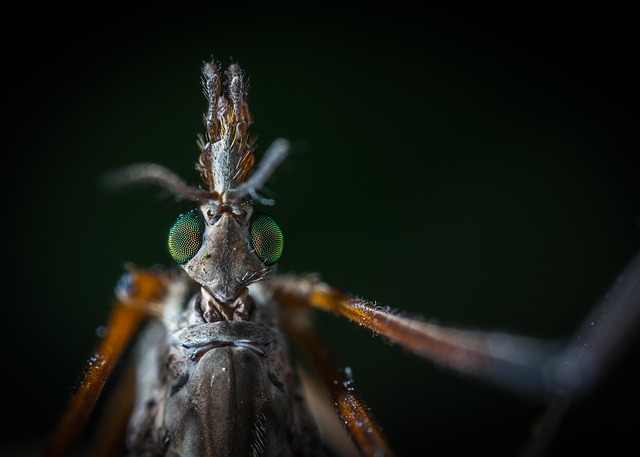
Natural repellents derived from essential oils and plants have gained significant attention as eco-friendly alternatives for mosquito control. These organic solutions offer a safe and non-toxic approach to warding off mosquitoes, making them popular choices for homeowners and outdoor enthusiasts seeking to minimize exposure to chemical treatments. Essential oils like citronella, lavender, and peppermint are well-known for their repellent properties; when applied topically or diffused, they can effectively deter mosquitoes from biting.
Plants such as lemongrass, basil, and marigolds also serve as natural mosquito deterrents due to their unique chemical compositions. Growing these plants around your living space or in garden areas can help create a protective barrier against mosquito infestations. Many people prefer these natural methods for their ease of use and minimal environmental impact, providing an appealing alternative to conventional mosquito control measures.
Chemical Repellents: DEET and Beyond
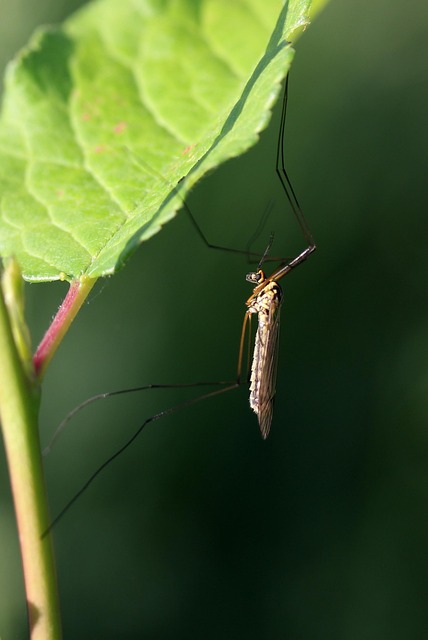
Chemical repellents, such as DEET (N,N-diethyl-m-toluamide), have been long-standing allies in the battle for mosquito control. DEET is a synthetic compound that interferes with mosquitoes’ sensory systems, making it an effective barrier against bites. It’s widely used due to its reliability and affordability, offering protection for up to several hours when applied correctly. However, concerns about potential health risks associated with DEET have sparked interest in developing safer alternatives.
Scientists and researchers are now exploring a range of new options beyond DEET. Natural compounds like citronella, lemon eucalyptus oil, and picaridin show promise as effective mosquito repellents with reduced side effects. These alternatives often gain favor among consumers seeking more eco-friendly and chemical-free solutions for mosquito control. As research progresses, we can expect to see even more innovative treatments entering the market, providing a broader range of choices for individuals looking to protect themselves from these pesky insects.
Environmental Control: Eliminating Breeding Sites
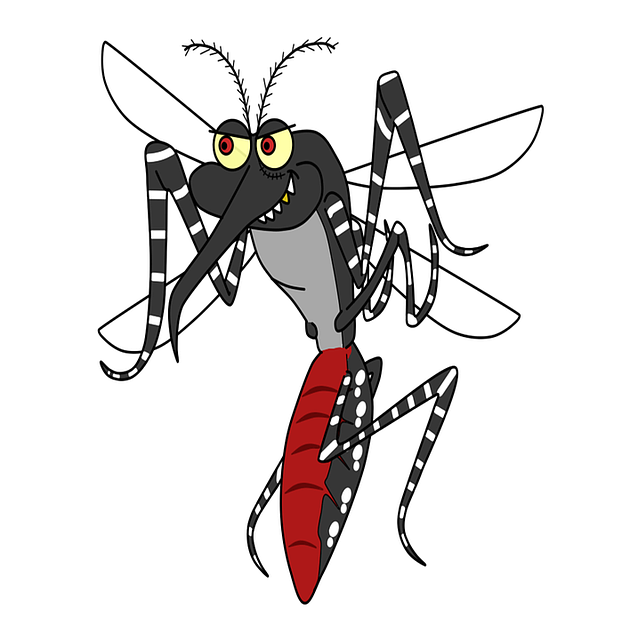
Mosquito control goes beyond just repelling the insects; it involves a strategic approach to eliminating their breeding sites, which is an essential aspect of managing mosquito populations effectively. Environmental control plays a pivotal role in this strategy. By understanding where mosquitoes breed and taking proactive measures, individuals and communities can significantly reduce the presence of these pests.
Breeding sites are typically found in stagnant water, such as ponds, buckets, tires, or clogged gutters. Removing or treating these areas is crucial. Regularly emptying containers that can hold water, maintaining proper drainage systems, and ensuring water bodies do not stagnate are simple yet effective measures. These actions disrupt the mosquito lifecycle, preventing larvae from developing into adult mosquitoes, thereby reducing their overall numbers and the associated health risks they pose.
Personal Protection: Clothing and Skin Care

Personal protection is a crucial aspect of mosquito control, especially when venturing into environments where these pests are prevalent. Wearing appropriate clothing can create an effective barrier against mosquito bites. Long sleeves, pants, and socks not only cover exposed skin but also help to keep mosquitoes at bay. Treating clothing with permethrin, a synthetic compound that kills and repels mosquitoes, is another highly effective strategy. This treatment lasts through multiple washes, providing prolonged protection during outdoor activities.
In addition to clothing, skincare products play a significant role in personal mosquito control. Using insect-repellent lotions, sprays, or creams containing DEET (N,N-diethyl-m-toluamide) can be highly effective in deterring mosquitoes. These products create a protective layer on the skin, making it less attractive to these insects. It’s important to follow application instructions and reapply as needed, especially after swimming or excessive sweating, to maintain maximum protection.
Devices and Technologies: Electric Repellents and Apps
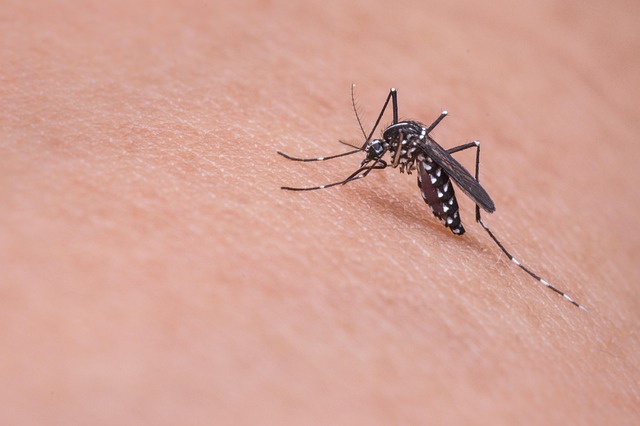
Electric repellent devices have gained popularity as modern solutions for mosquito control. These innovative tools use ultrasonic waves or electromagnetic fields to deter mosquitoes, offering a chemical-free alternative to traditional sprays. Many of these devices are designed to be compact and portable, suitable for outdoor activities like camping or gardening. They emit sounds beyond human hearing, creating an uncomfortable environment for mosquitoes, effectively repelling them without harming humans or pets.
Moreover, mobile apps have joined the fight against mosquito bites. Some apps use GPS to track mosquito-prone areas, providing users with real-time data on local insect activity. Others offer personalized recommendations for repellent products and share tips on how to create an insect-free environment. By combining technology with traditional mosquito control methods, these apps empower individuals to take charge of their outdoor experiences, ensuring they can enjoy the great outdoors without constant pestering from mosquitoes.
Community Efforts: Vector Control Programs
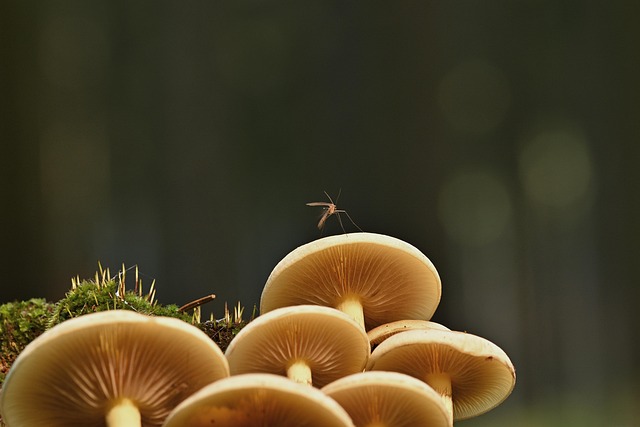
Community efforts play a pivotal role in mosquito control, especially when it comes to vector control programs. These initiatives involve coordinated actions taken by local communities, governments, and health organizations to reduce mosquito populations and prevent the spread of diseases they carry. By combining education, environmental management, and biological or chemical interventions, these programs aim to create a more sustainable and healthier living environment.
Vector control programs often include strategies such as eliminating standing water where mosquitoes breed, using insecticides targeted at specific species, and promoting the use of personal protective measures like repellents and mosquito nets. Community involvement is crucial for success, as it ensures consistent monitoring, rapid response to emerging threats, and long-term sustainability of these control measures.
